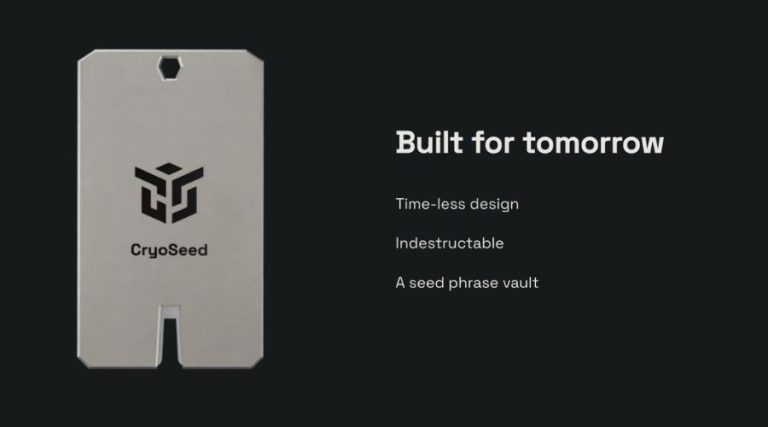
The emergence of decentralized finance (DeFi) has opened up new opportunities for investors, offering a more open and accessible system for financial services. In this article, we will explore the potential impact of DeFi protocols on real estate investment, examining how these platforms can create new opportunities for investors and revolutionize the real estate industry.
Introduction to DeFi
Decentralized finance, or DeFi, refers to an emerging sector of the blockchain ecosystem that allows users to access a range of financial services without relying on traditional centralized institutions such as banks. DeFi is built on decentralized blockchain networks, which are transparent, secure, and accessible to all users.
Real Estate Investment and Traditional Finance
Real estate investment has traditionally been dominated by institutional investors and high net worth individuals who have access to large amounts of capital. Traditional financing options, such as bank loans, can be difficult to obtain for smaller investors, limiting their ability to participate in the market.
DeFi and Real Estate Investment
DeFi can offer several advantages over traditional financing options for real estate investment, including greater accessibility, lower fees, and faster transaction times. DeFi platforms can create new opportunities for investors to participate in the real estate market, providing a more equitable and inclusive system for investment.
Use Cases for DeFi in Real Estate Investment
There are several use cases for DeFi in real estate investment, including:
Tokenization
Tokenization involves converting real estate assets into digital tokens that can be traded on a blockchain platform. Tokenization can create more liquidity for real estate investments, allowing investors to buy and sell tokens representing a fraction of a property’s value.
Decentralized Financing
DeFi platforms can offer decentralized financing options for real estate investment, allowing investors to obtain financing without relying on traditional banks. Decentralized financing can be more accessible and affordable, providing smaller investors with the opportunity to participate in the market.
Smart Contracts
Smart contracts can be used to automate and streamline real estate transactions, reducing the need for intermediaries such as brokers and lawyers. Smart contracts can also create greater transparency and security in real estate transactions, reducing the risk of fraud and increasing investor confidence.
Real Estate Crowdfunding
DeFi platforms can offer real estate crowdfunding options, allowing investors to pool their resources together to invest in real estate assets. Real estate crowdfunding can create more opportunities for smaller investors to participate in the market and spread their risk across multiple properties.
Greater Transparency and Efficiency
DeFi protocols can increase transparency and efficiency in real estate investment by providing more accessible and accurate information about properties and transactions. This can reduce the need for intermediaries and streamline the investment process, making it more accessible and affordable for a wider range of investors.
Global Accessibility
DeFi protocols can provide real estate investment opportunities to a global audience, allowing investors from all over the world to participate in the market. This can increase liquidity and create more opportunities for investment, driving growth and innovation in the real estate industry.
Risk Management
DeFi protocols can offer advanced risk management solutions for real estate investors, allowing them to better manage and mitigate risks associated with real estate investment. This can create a more stable and secure investment environment, reducing the risk of losses and improving investor confidence.
Alternative Investment Opportunities
DeFi protocols can offer alternative investment opportunities in the real estate industry, such as investing in real estate development projects or participating in real estate crowdfunding campaigns. These alternative investment opportunities can create more diversity in the market, providing investors with more options and increasing access to investment opportunities.
Real Estate Tokenization
Real estate tokenization can create a more liquid and accessible real estate market, allowing investors to buy and sell fractional ownership of real estate assets. This can increase liquidity and create new opportunities for smaller investors to participate in the market, driving growth and innovation in the real estate industry.
Future Potential
As DeFi protocols continue to evolve and mature, there is significant potential for them to transform the real estate industry and create new opportunities for investors. By embracing innovation and technology, we can create a more efficient, accessible, and equitable real estate market that benefits everyone.
Decentralized Property Management
DeFi protocols can provide solutions for decentralized property management, enabling investors to manage real estate assets in a more efficient and transparent manner. This can create more accountability and reduce the risk of fraud, making real estate investment more secure for all stakeholders.
Disintermediation
DeFi protocols can reduce the role of intermediaries such as brokers and lawyers in real estate investment, lowering transaction costs and making the investment process more streamlined and efficient. This can create a more accessible and affordable real estate market for investors of all sizes.
Smart Contracts in Real Estate Investment
Smart contracts can automate real estate transactions, reducing the need for intermediaries and increasing efficiency and security. This can lower transaction costs and reduce the risk of fraud, making real estate investment more accessible and secure for all investors.
Democratization of Real Estate Investment
DeFi protocols can democratize real estate investment by making it more accessible and inclusive for a wider range of investors. This can drive innovation and growth in the real estate industry, creating more opportunities for small and large investors alike.
Impact on Real Estate Developers
DeFi protocols can have a significant impact on real estate developers, providing them with new sources of financing and enabling them to reach a wider audience of potential investors. This can drive innovation in real estate development and create more opportunities for growth and expansion in the industry.
Real Estate Investment Trusts (REITs)
DeFi protocols can provide solutions for the creation and management of Real Estate Investment Trusts (REITs), enabling investors to pool their resources together to invest in real estate assets. This can create more liquidity and opportunities for investors of all sizes to participate in the real estate market.
Challenges and Risks
While DeFi protocols offer many potential benefits for real estate investment, there are also significant challenges and risks that must be addressed. These include regulatory issues, security risks, and the need for greater education and awareness among investors.
Collaboration with Traditional Real Estate Industry
DeFi protocols can collaborate with traditional real estate industry players, such as brokers and developers, to create new opportunities for investment and growth in the industry. This can drive innovation and create a more dynamic and inclusive real estate market for all stakeholders.
Real Estate Tokenization Standards
The development of real estate tokenization standards can create greater interoperability and efficiency in the real estate market, making it easier for investors to buy and sell fractional ownership of real estate assets. This can increase liquidity and create more opportunities for investment in the industry.
Future Potential of DeFi in Real Estate Investment
The future potential of DeFi protocols in real estate investment is significant, offering new opportunities for innovation and growth in the industry. As the field of DeFi continues to evolve and expand, we can expect to see even more opportunities for democratizing access to real estate investment and creating a more inclusive and equitable real estate market for all stakeholders.
Conclusion
DeFi protocols have the potential to revolutionize the real estate industry, offering new opportunities for investors and creating a more inclusive and accessible system for investment. By leveraging blockchain technology and creating more open and transparent systems, DeFi can democratize access to real estate investment and create a more equitable financial system for all.
Investors and industry players should be aware of the potential of DeFi protocols to change the way we invest in real estate, and explore the opportunities that this emerging sector can provide. By embracing innovation and technology, we can create a more efficient and effective real estate industry that benefits investors, developers, and consumers alike.
I have been writing about cryptocurrencies for over two years and I’m widely considered one of the most knowledgeable and respected authors in the space. I have a deep understanding of the underlying technology and market dynamics, and my insights have helped countless investors make informed decisions about their portfolios. I’m a speaker and commentator, and my work has been featured in major publications such as CoinDesk, Forbes, and The Wall Street Journal. I also run a popular cryptocurrency trading signals service that has helped thousands of people make money in the volatile but potentially lucrative world of digital assets.


